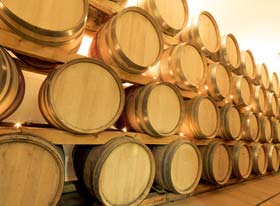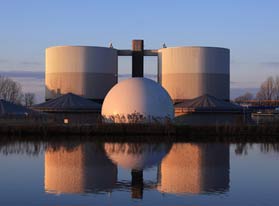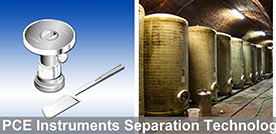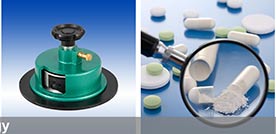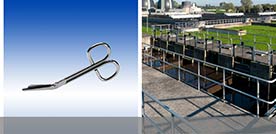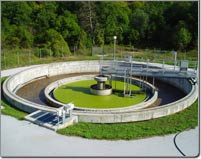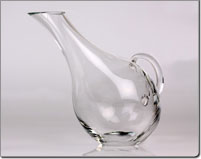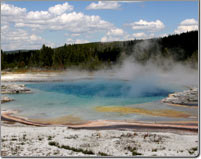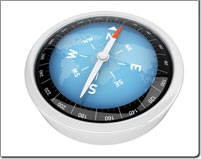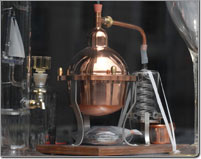|
|
||||||||||||||||||||||||||||||||||||||||
|
Separation Technology Separation technology is a far-reaching term. According to DIN 8580, separation is the alteration of a body’s form due to the breaking-up of the local cohesion. Separation procedures are therefore important in various fields, such as in the industry, in handling metal-working manufacturing, in crafts and trades or in chemical laboratories. In manufacturing technology, for example, predominantly solid matters such as metals are separated. Separation procedures are also used in process engineering, in which the various material properties are
utilized. Included in these separation procedures are thermal and mechanical procedures. Regarding thermal procedures, the boiling and freezing points are
utilized. Particle sizes, densities and magnetizability are properties that are important predominantly in mechanical procedures. But not only solid matters are separated. Fluid mixtures made up of two or more materials can be separated into their components via various procedures. A distinction is made here between homogeneous and heterogeneous mixtures. A homogeneous mixture is when the components of a mixture are mixed down to a molecular level and form a single phase in which no distinction between the components can be made. In contrast, heterogeneous mixtures are made up of chemical compounds in which the different phases can still be distinguished. The separation can be carried out via easy procedures, the basic form of which any student learns in chemistry class. The most well-known procedure is filtration. Here, solid matters are separated from fluid matters via a strainer or filter paper, for example the filtration of coffee powder from coffee water. The next separation technology procedure is sedimentation. Earth’s gravitational force is utilized in this procedure, insofar as that heavy components in a fluid sink to the bottom. Centrifugation is a more physical process. Through the centrifugal force, heavier components are pushed to the bottom of the container that is to be
centrifuged. Therefore, a deposit takes place. When it comes to separation technology, one should take into consideration the materials and their respective properties in order to achieve optimal results. One reason for this is the fact that it is hard to reverse the use of separation technology in order to regain a solid material. In the broadest sense, separation technology also include all instruments and devices which can perform separation procedures such as saws, sawing blades, knives, scalpels and full-automatic systems. PCE Instruments Ltd. has a series of separation technology. Almost everyone should be able to find the appropriate separation device here. |
||||||||||||||||||||||||||||||||||||||||
|
|
||||||||||||||||||||||||||||||||||||||||
|
||||||||||||||||||||||||||||||||||||||||
|
Mechanical separation procedures in separation technology: |
|
You are currently at: Home / measuring instruments and test equipment / separation technology |
|
If you have any questions, call our offices on: |


